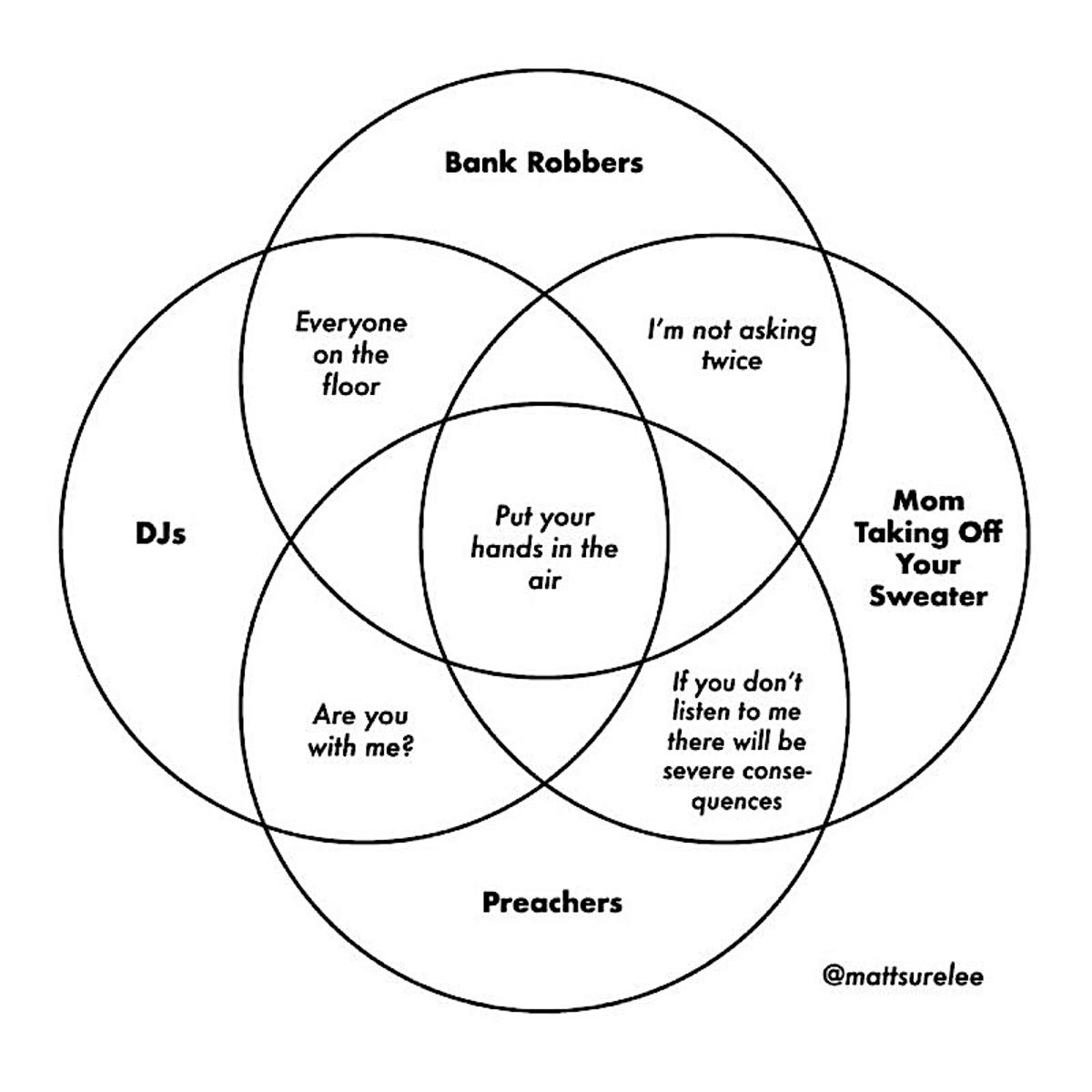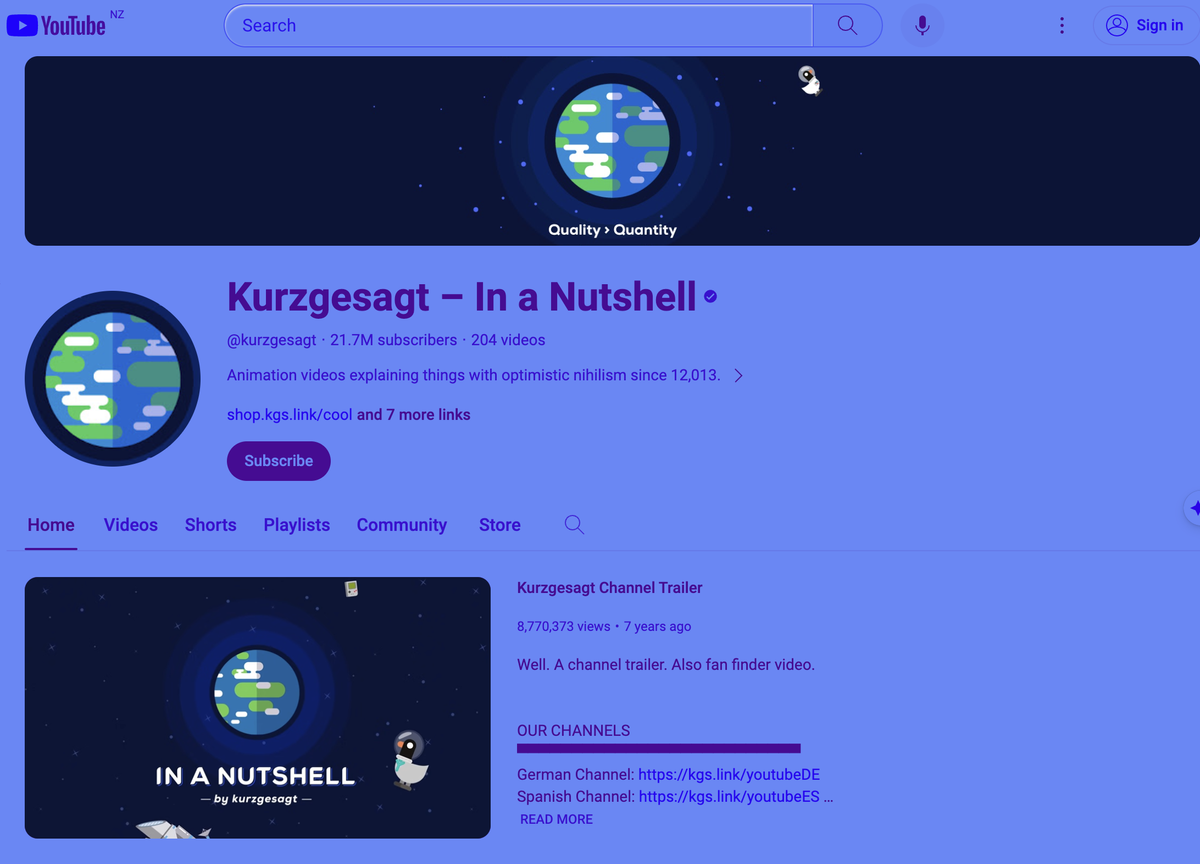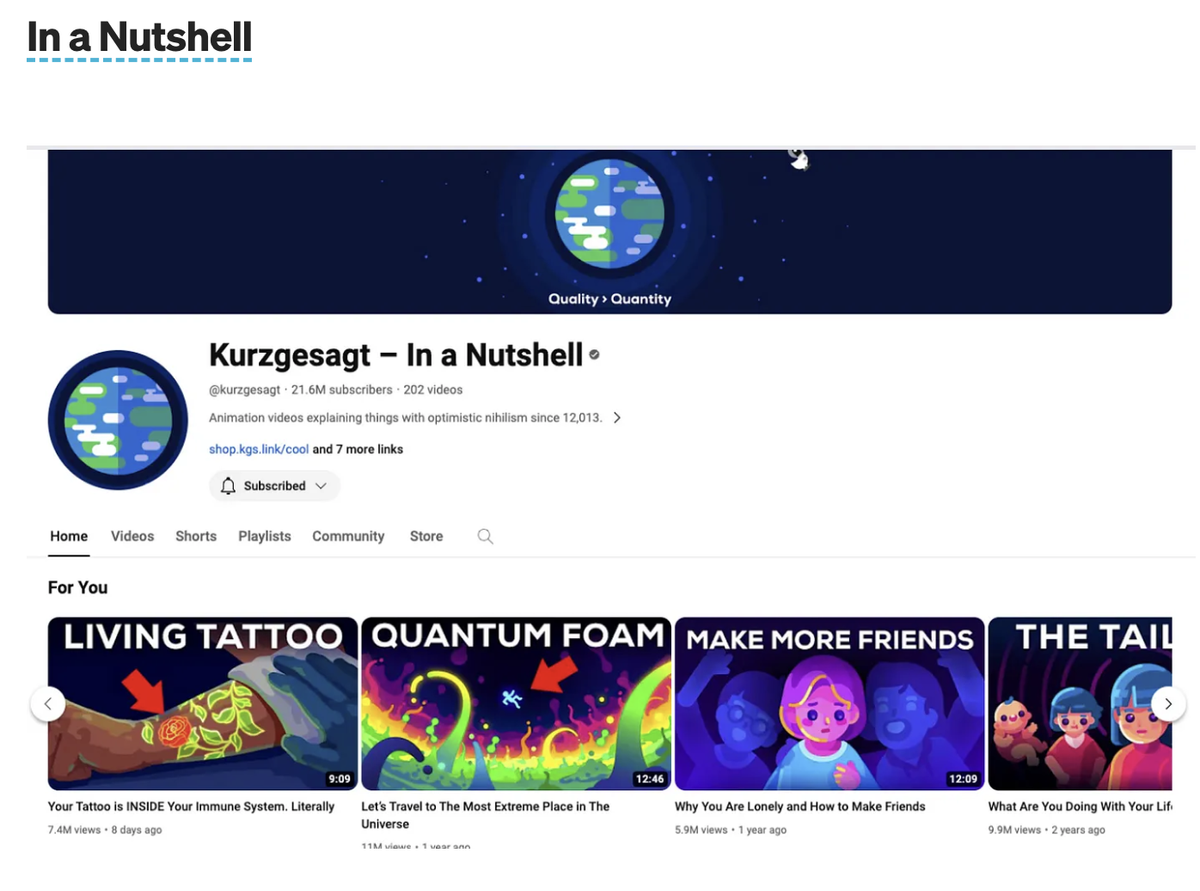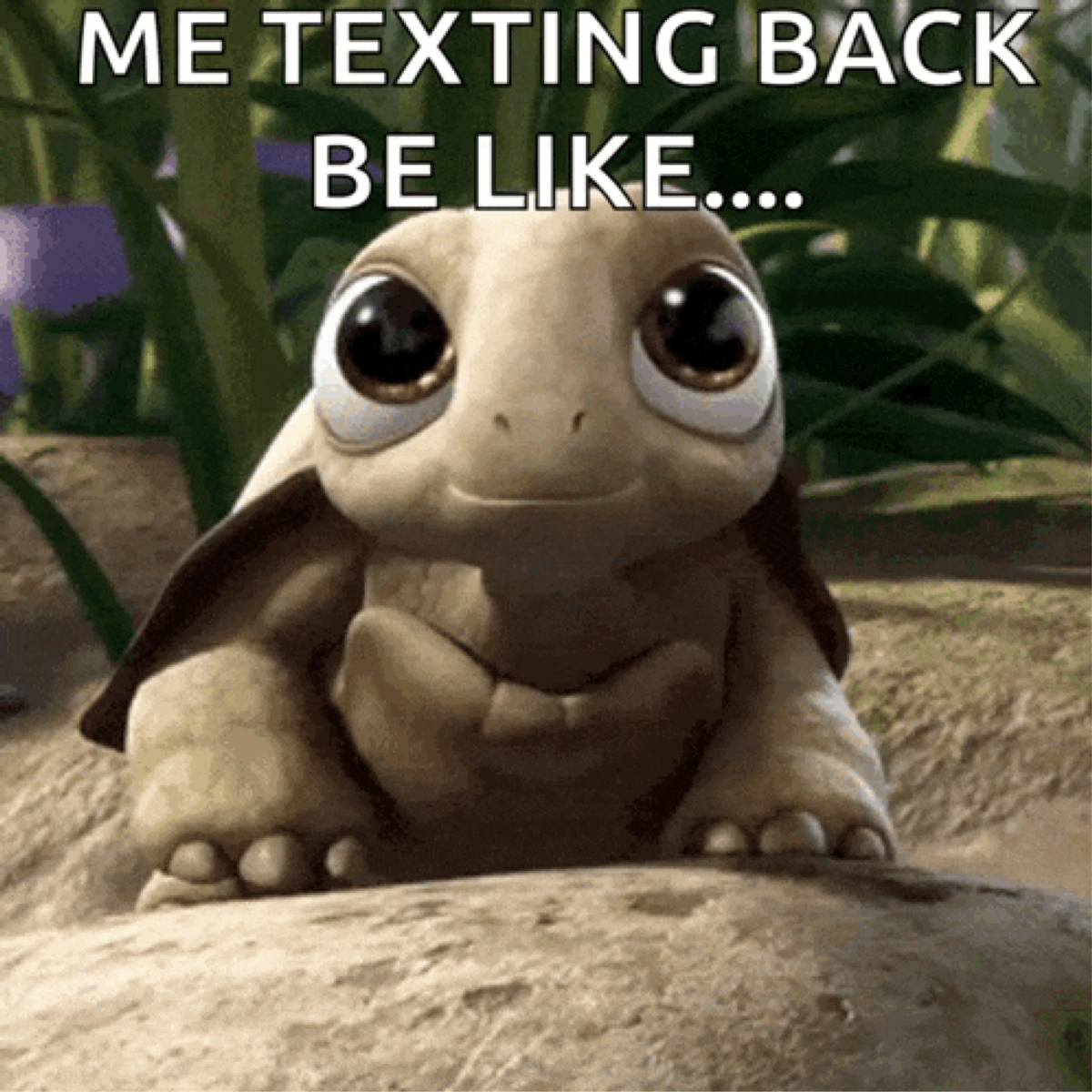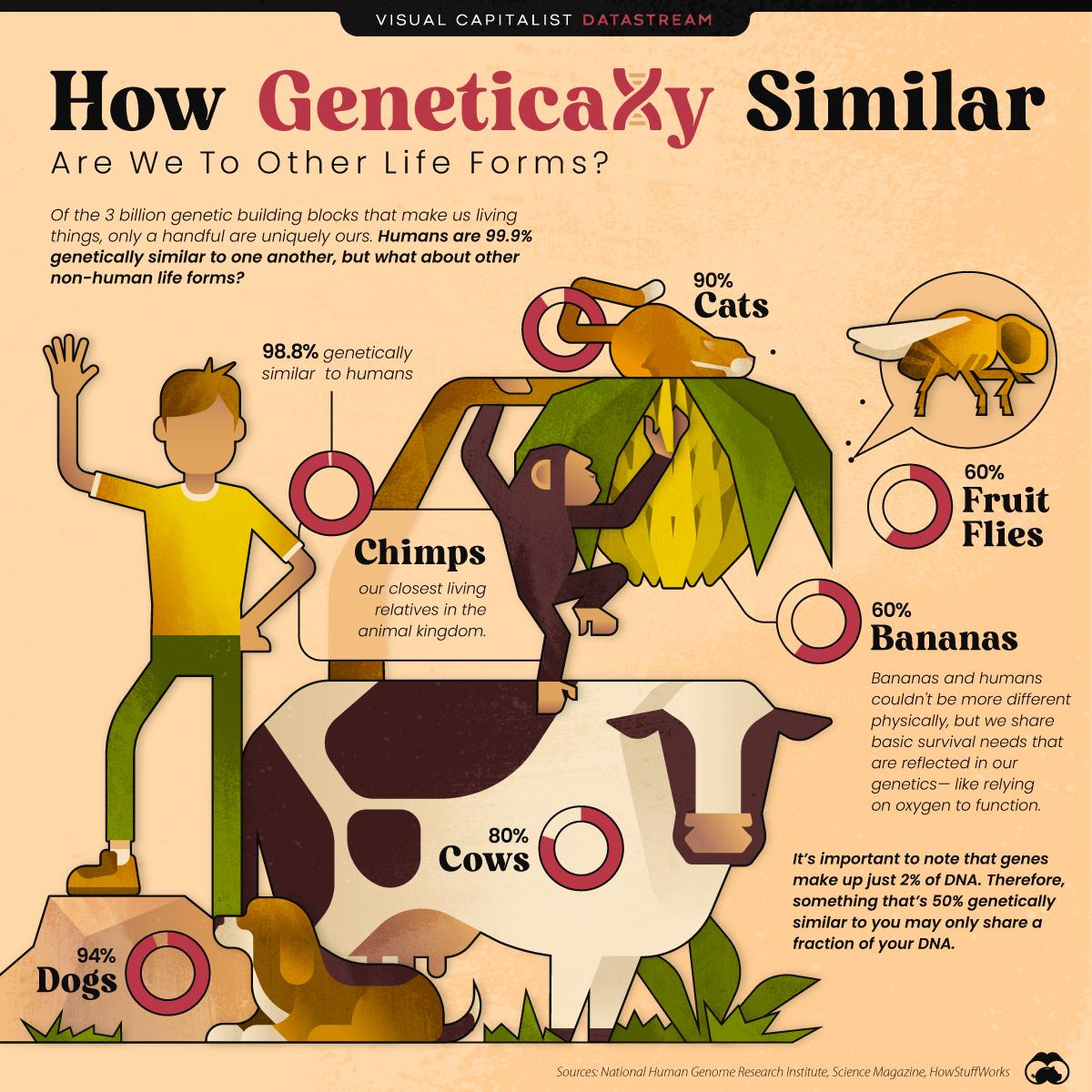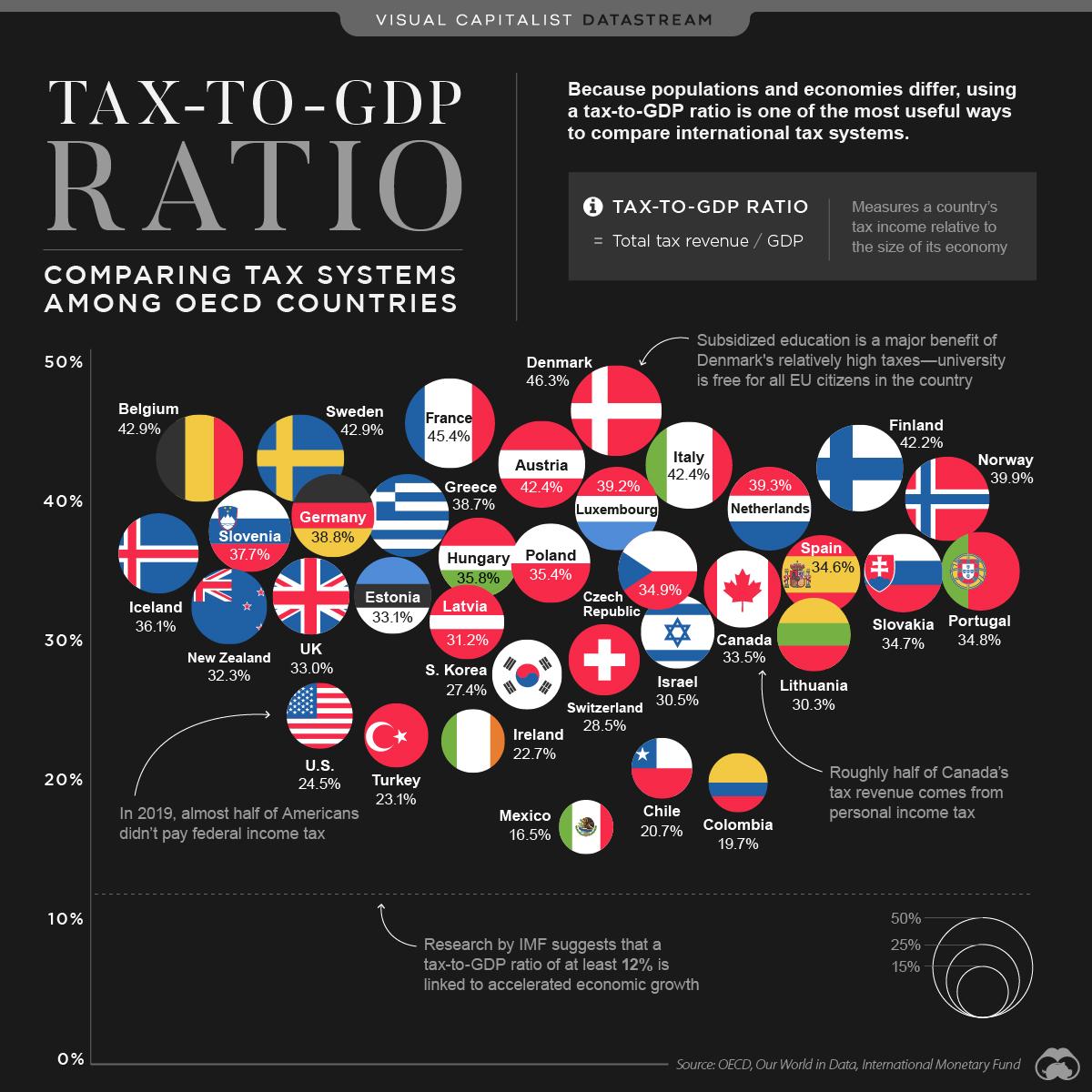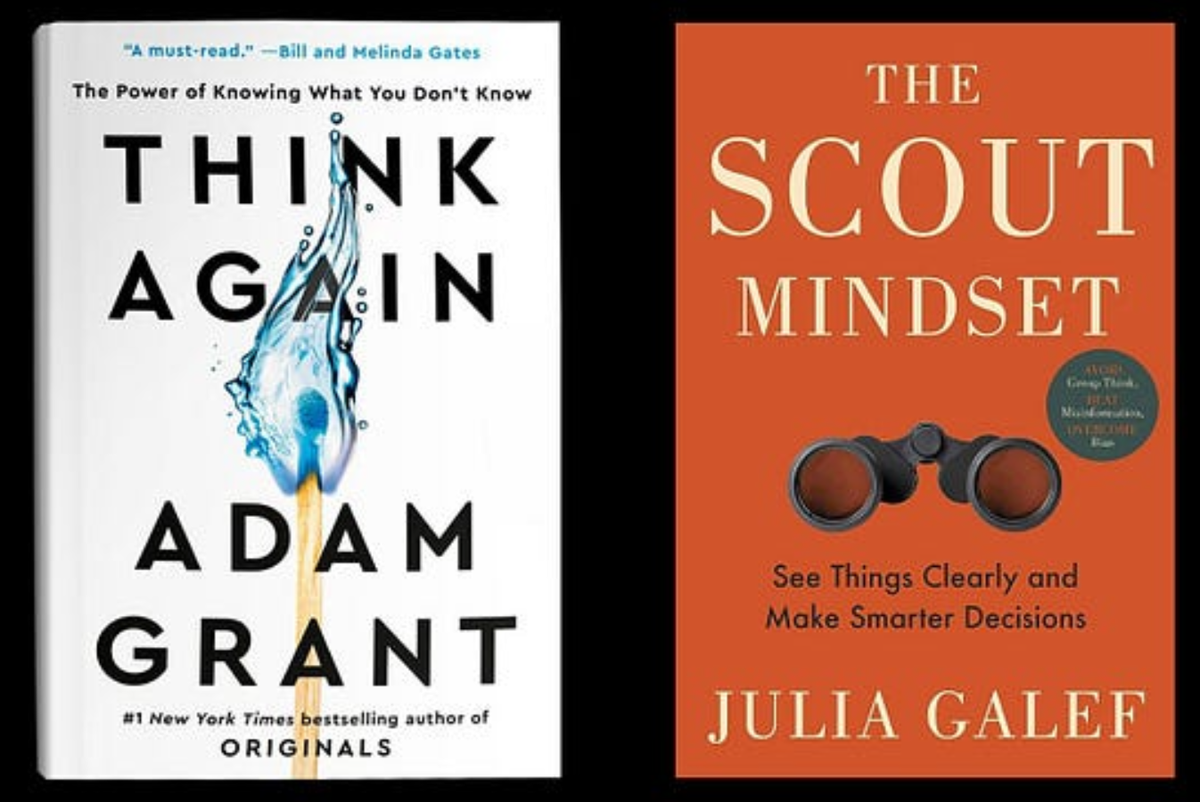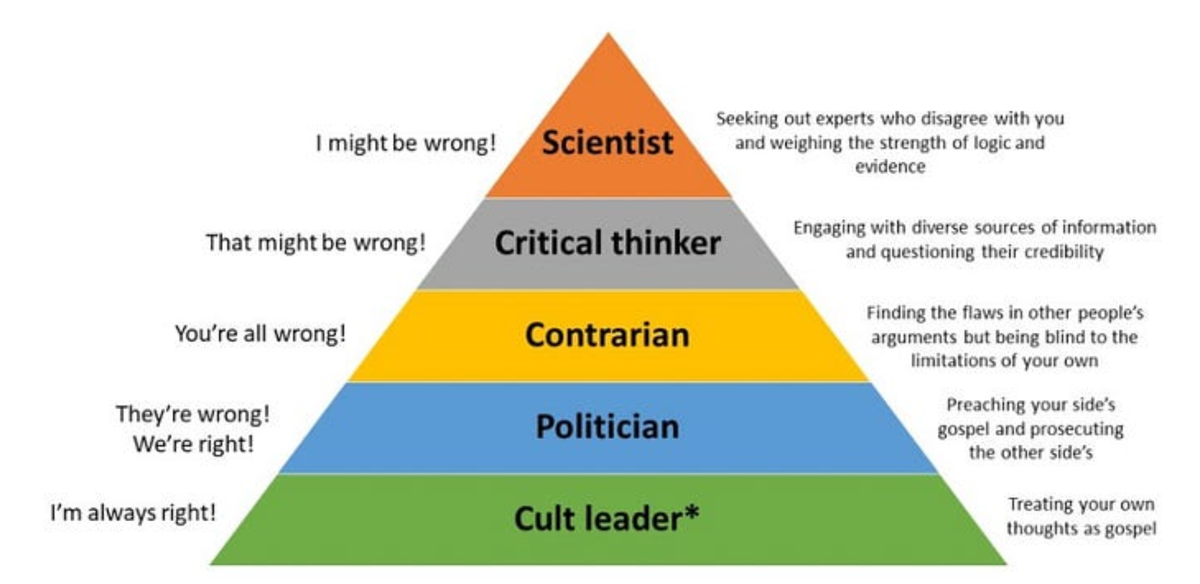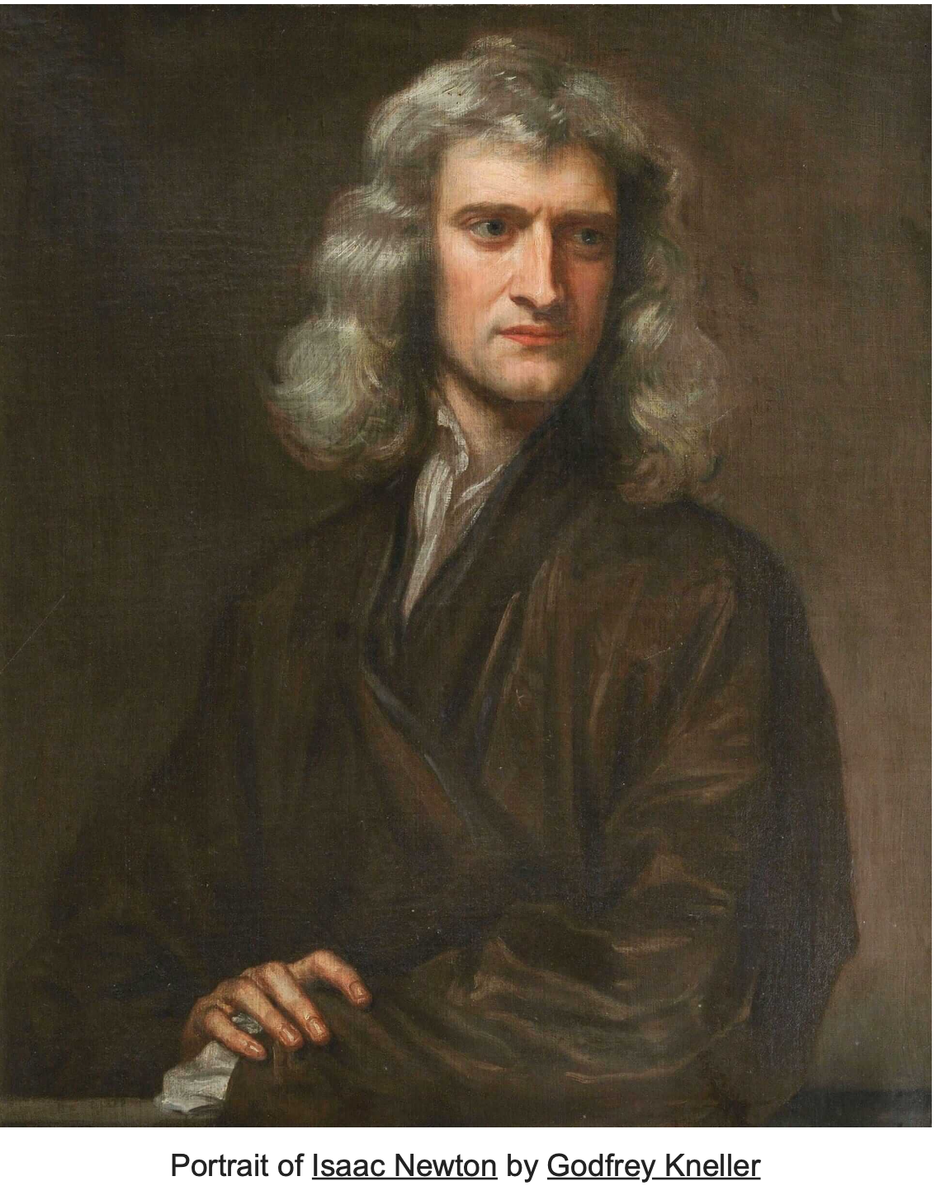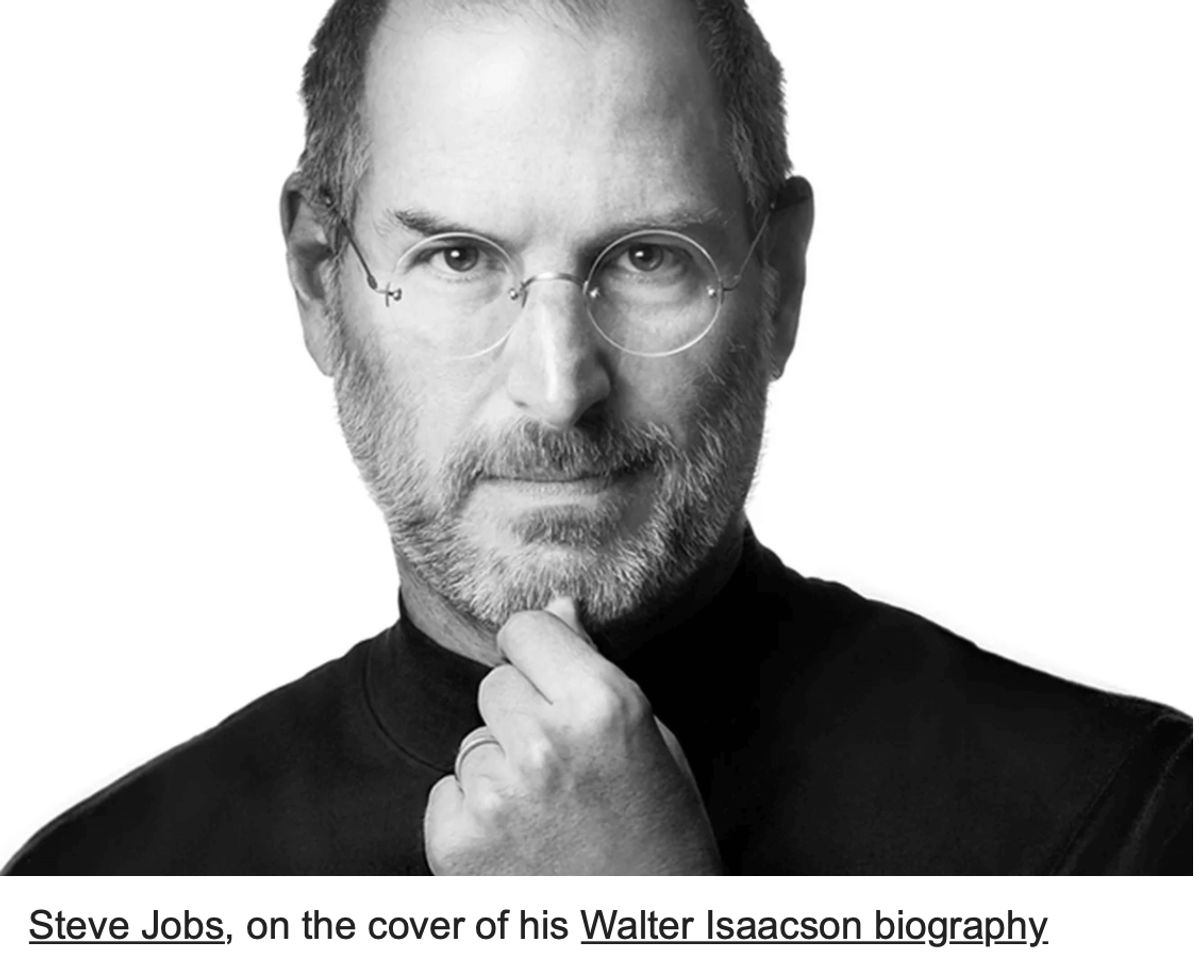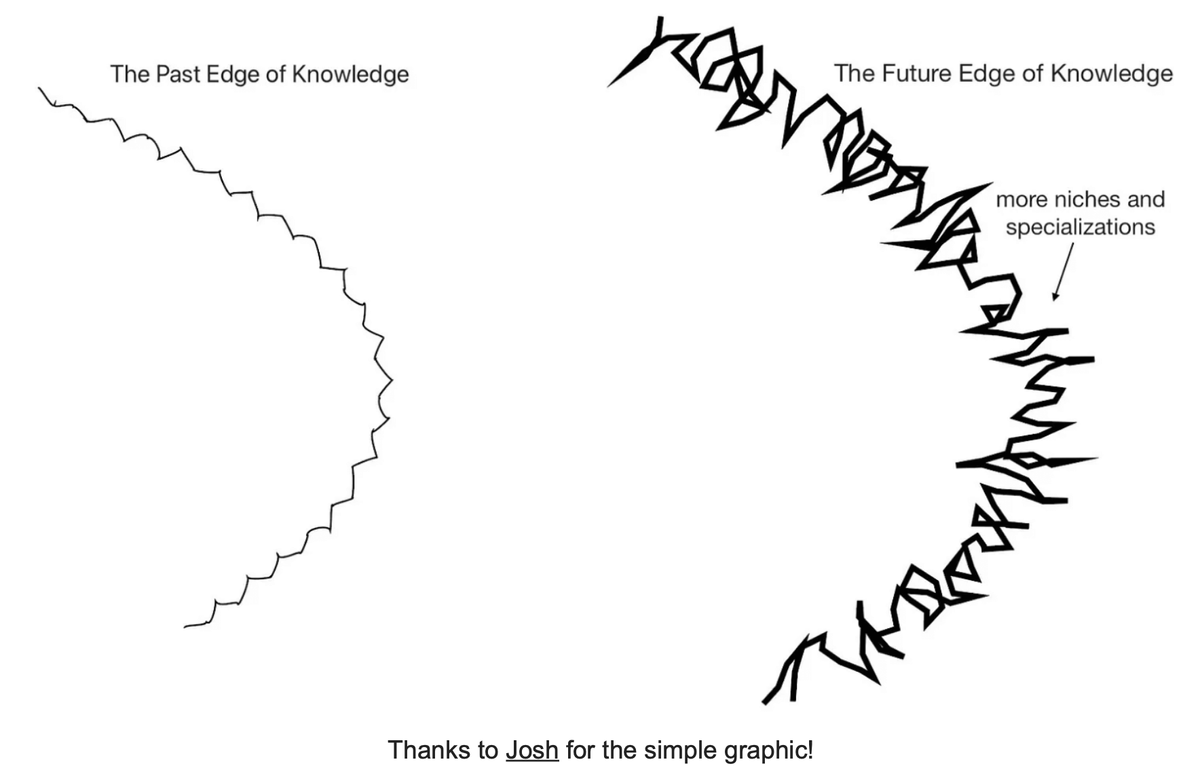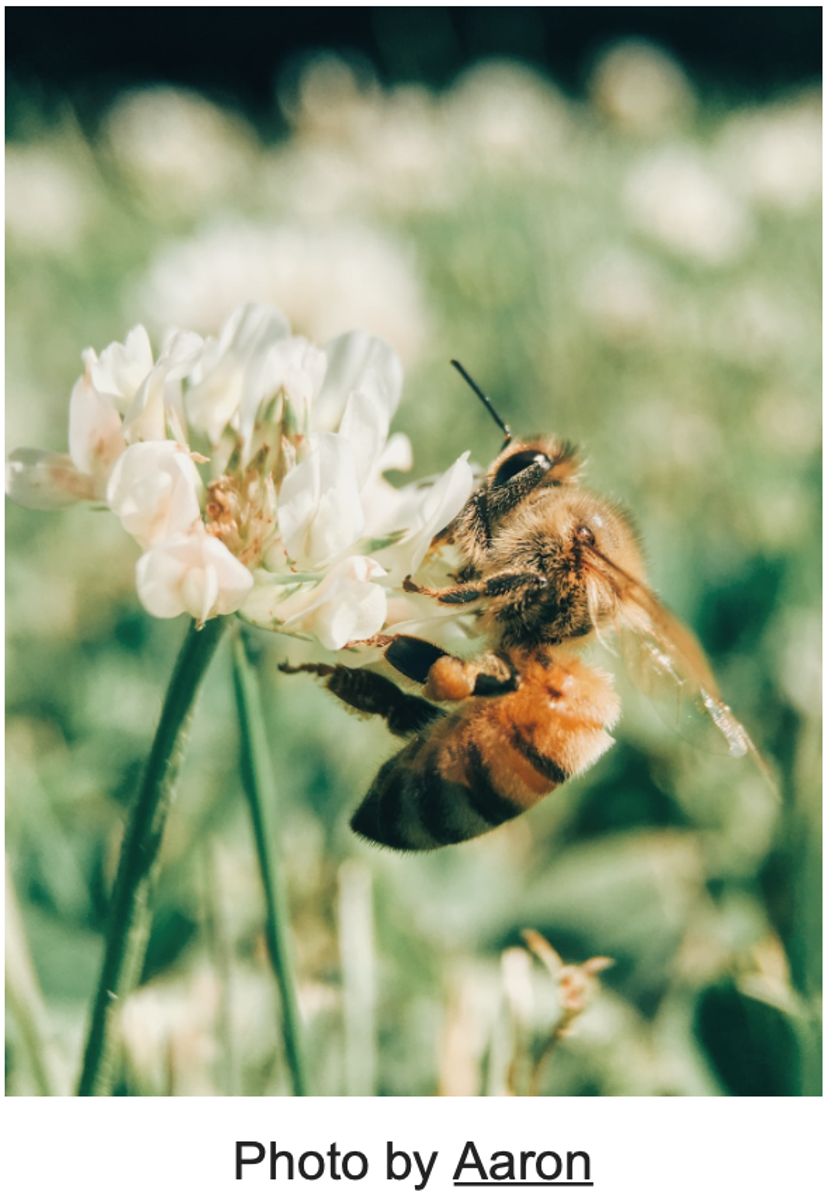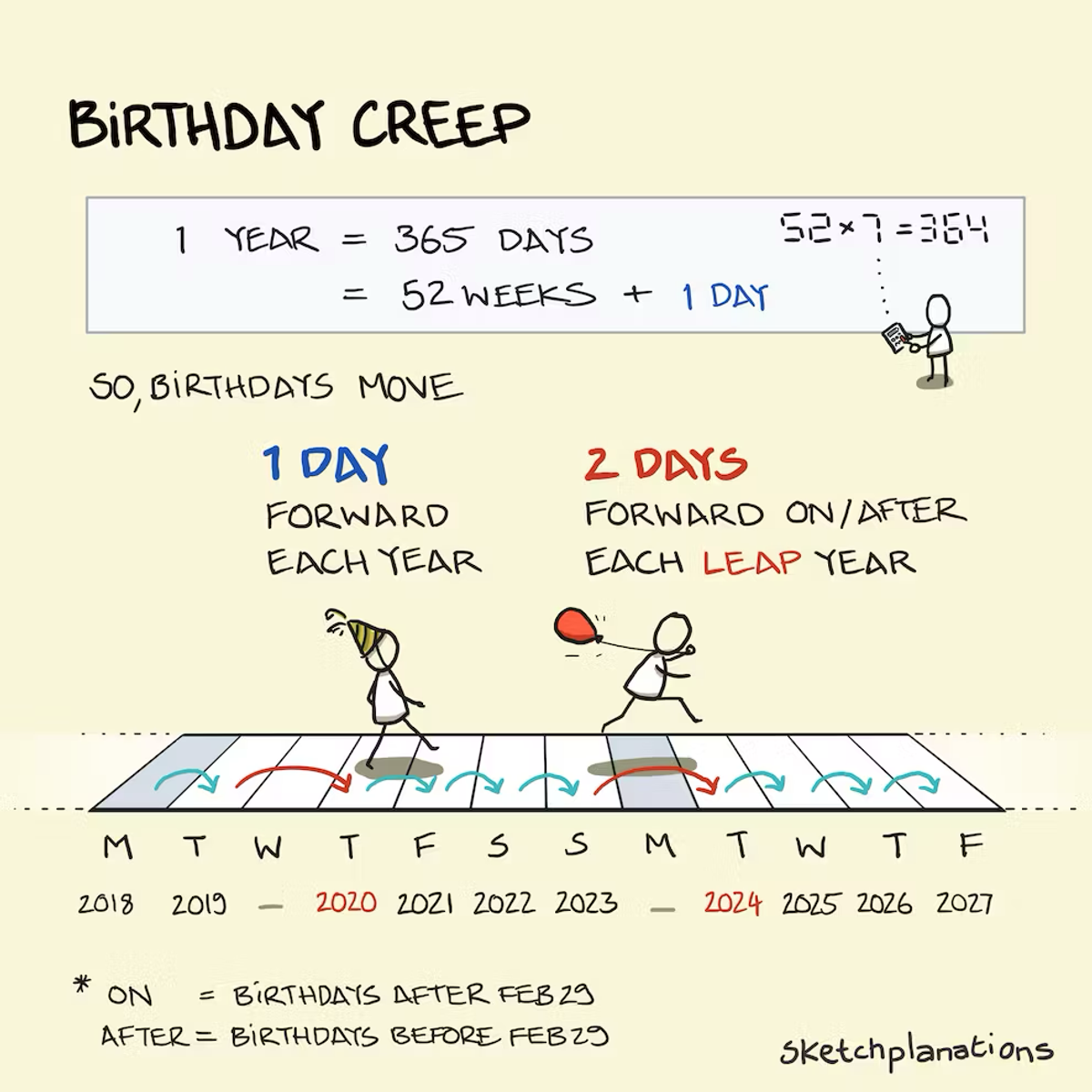Teachers' Page:

We start each week with a Monday Morning Meeting for staff. It's a time for information sharing, celebrating staff and children's achievements, laughter, building and strengthening the kaupapa foundations for our school, and a few tips on teaching, techie skills and even life. This page will be the place teachers can come back to if they want to revisit anything we covered in our Monday Morning Meetings.
It's really a page for teachers, but if you find anything worthwhile here for yourself, great.
The Best Venn Diagram of All Time?
Web Pages:
In A Nutshell
https://www.youtube.com/channel/UCsXVk37bltHxD1rDPwtNM8Q
They create animated videos to spark curiosity about science and our world. Their team of illustrators, animators, number crunchers, and one dog believe that nothing is boring if you tell a good story.
Lessons:
1) Learn Science’s role in our world
2) Get breakdown across different science fields(Psychology, astronomy, biology etc)
3) Complex topics are broken down through clear visuals and storytelling.
Techie Tips:
Use Stacks
Right-click on the desktop and choose the option known as “Use Stacks”, and this automatically sorts every file into a single stack that you can access with a single click.
You will find the “Group Stacks by” option right below, and I choose “Kind”.
Now, on your desktop, you will find multiple stacks that you can easily find once you know what kind of file it is.
Finder Settings
Open the finder and go to the “View” tab in the MenuBar.
Select both “Show Path Bar” and “Show Status Bar”.
You will find two new bars added to the bottom of all finders.
The path bar can be used to quickly return to any of the previous folders needed to reach this one. The status bar provides information like the amount of available storage, the number of items in a folder, or the number of selected items.
Also, in the Finder Preferences, you will find a “Sidebar” tab, which allows you to easily decide which items are shown or hidden from your sidebar, which means that you can keep it as useful as you require.
To Ponder:
The Kai Tahu Creation Story
Article:
The Case Against Assertiveness And The Beauty Of “I Don’tknow”
Jorge Valencia
“One of the painful things about our time is that those who feel certainty are stupid, and those with any imagination and understanding are filled with doubt and indecision.” —
Bertrand Russell
I still remember the day a former boss told me that my lack of assertiveness was a major
flaw. According to him, as the leader of my team, I needed to speak louder and radiate
confidence. However, as an introvert, my inclination has always been to listen first and then make suggestions, rather than command with an iron fist.
I didn’t feel comfortable leading before, but now I am, as I’ve found a place that values my
quiet leadership style. I’ve never been the loudest person in the room, but I do consider
myself a very good listener. When you truly listen, you understand people better. You hear
their objections, anxieties, and fears. You also hear solutions to problems.
However, people tend to hold talkers in higher regard than listeners.
I’m sure you’ve been in meetings with characters like Don Draper — full of unshakable
confidence. They wield authority, leaving no room for doubt. Their charm lies not in the
strength of their arguments but in the self-assurance they radiate. In many ways, they
resemble politicians, defending their ideas without engaging in dialogue.
So, let me present a compelling case against assertiveness and reveal the beauty of uncertainty.
The tricky side of assertiveness
Assertiveness has been considered a vital characteristic of confidence, authority, and
effectiveness. We’ve been told that having all the answers and projecting certainty is the
golden ticket to success. But this fails to acknowledge the limitations and potential pitfalls of an overly assertive mindset.
When we obsess over certainty, we build walls of closed-mindedness. We become less
receptive to new information, limiting our personal growth. Imagine a world where we can’t see our blind spots. It’s like walking around with blindfolds, pretending we’ve figured it all out. That is not exactly the recipe for progress.
By refusing to embrace the unknown, we severely limit our potential to gain new
knowledge and insights.
In the rapidly evolving tech industry, change occurs at lightning speed. We need to stay open to fresh ideas. Yet, the traditional assertiveness script frowns upon admitting that we don’t know something. But guess what? Refusing to embrace the unknown severely limits our potential to gain new knowledge and insights.
So, what’s the solution? It’s time to pause and reassess our perspective on
assertiveness, and invite a new cast of characters onto the stage: humility and curiosity.
Embracing humility and curiosity
This sounds fancy, but it’s a way of recognizing the limits of our knowledge. It’s
acknowledging that we don’t have all the answers and being okay with it.
Curiosity, on his part, is a beacon of light, illuminating new paths and uncovering hidden
treasures. By adopting a questioning mindset, we challenge our assumptions, seek
alternative perspectives, and dive into the unknown.
Now, let’s be clear. I’m not saying we should completely ignore assertiveness. In high-
pressure situations where quick decisions are essential, a resolute individual can
often provide more assistance than someone who is hesitant. I’ve had the chance to
work with some really impressive, assertive people who any team would love to have.
Assertiveness really shines in high-pressure activities like sports, medical
emergencies, and firefighting, just to name a few.
My intention isn’t to outright dismiss assertiveness, but it’s time to invite humility and curiosity to the party. By taking this more nuanced approach — one that integrates intellectual humility and a sincere thirst for discovery — we create an environment where uncertainties are celebrated, ideas are exchanged, and new knowledge flourishes.
Think Again and The Scout Mindset
In “Think Again” and “Scout Mindset,” we can find a common thread
through the narrative: the transformative value of questioning our own beliefs and embracing a rational approach to uncertainty.
“Think Again,” introduces us to a hierarchy of thinking styles, with The Scientist at
the top and The Politician at the bottom. Imagine a world where we embody the
spirit of the scientist — a champion of open-mindedness, perpetually seeking evidence and updating beliefs based on data.
Grant explains the value of embracing the scientist’s mindset for enhancing decision-making and fostering intellectual growth. Scientists thrive in uncertainty, admitting when they don’t have all the answers. On the other hand, politicians cling to pre-existing beliefs, wielding persuasion as their weapon of choice.
A hierarchy of rethinking styles.
Now, let’s dive into the Scout Mindset. Picture yourself as a scout, venturing into the
unknown with a burning desire for truth. A questioning mindset becomes your weapon of
choice, a powerful tool to challenge assumptions, explore alternative perspectives, and
discover new ideas.
In The Scout Mindset, Galef illustrates the contrast between an assertive mindset —
represented by The Soldier — and a curious mindset — represented by The Scout — by
comparing these two distinct approaches to reasoning.
⚔️ The Soldier Mindset
1. Reasoning is like a soldier.
2. Decide what to believe by asking either, depending on your motives.
3. Finding out you’re wrong means
4. Seek out evidence to
5. Related concepts:
Directionally, rationalizing, denial.
🕵️♀ The Scout Mindset
1. Reasoning is like a scout.
2. Decide what to believe by asking,
3. Finding out you’re wrong means
4. Seek out evidence that will
5. Related concepts:
Accuracy-motivated reasoning, discovery, objectivity, intellectual honesty.
The power of questioning and rationality ignites a cascade of personal growth, collaboration, and learning. We acknowledge the limits of our knowledge, learning from others and valuing the diverse perspectives they offer.
The beauty of “I don’t know”.
Saying “I don’t know” is not a sign of weakness but a badge of courage. It’s a declaration that acknowledges the vast limits of our knowledge and opens the gates of curiosity and the thirst for understanding.
But let me tell you something even more exciting — admitting uncertainty is a mighty catalyst for personal and intellectual growth. It sets in motion a desire to seek out new information, to explore different perspectives, and to discover novel experiences.
Admitting uncertainty is a mighty catalyst for personal and intellectual growth.
Openly admitting what we don’t know creates an environment where collaboration flourishes. It nudges us to seek input from others, valuing the diverse perspectives they bring to the table. This openness fosters constructive dialogue — a playground of ideas and innovation.
So, the next time you find yourself in a room with a Don Draper-esque character, don’t be
swayed by their confidence. Instead, think like a scientist — embrace the spirit of inquiry, follow the trail of evidence, and let your open mind be your guiding compass.
“How Knowledge Grows: A Rough Vision for the Future of Learning”
by Shahid Nowshad
At the broadest level, I think there are two coarse models of how domain knowledge
grows.
View 1: Experts drive progress
Sounds obvious, right? The people who have been educated to the frontier of a domain
are the ones who will push that frontier ahead… duh!
If so, things will look different in the coming years. In “Average Is
Over,” Tyler Cowen describes how as computers play an increasing role in our lives and
people become more specialised (a natural, healthy part of modern life), science
becomes more unintelligible:
1. In some (not all) scientific areas, problems are becoming more complex and
unsusceptible to simple, intuitive, big breakthroughs.
2. Individual scientific contributions are becoming more specialized, a trend that has
been running for centuries and is unlikely to stop.
3. One day soon, intelligent machines will become formidable researchers in their own
right.
Fundamental contributions will be harder to achieve because it takes more time and effort
to get to the frontier of something in the first place. There is “more you need to
know” before making a breakthrough.
View 2: Outsiders drive progress.
But what if experts sometimes get in the way of progress, rather than drive it? Richard Hamming describes this well in “The Art of Doing Science and Engineering.” By virtue of having spent so much time specializing in a field, experts are more deeply embedded in the assumptions that the field makes and thus oblivious to paradigm-shifting insights.
Because they have a “fresh” view of things, progress is often driven by outsiders!
Albert Einstein was working in the Swiss patent office during the legendary year he published five seminal papers in physics. More recently, a big chapter of the Steve Jobs myth is his 1979 visit to the legendary research centre Xerox PARC. This is supposedly where he discovered the graphical user interface, which was a key aspect of making computing accessible to the masses and eventually led to the success of the first Macintosh. The very engineers who developed the GUI weren’t able to conceive of how it could revolutionize the world (or so the story goes).
Synthesis: Knowledge growth via cross-pollination.
A corollary to the point that people are becoming more specialized: there are more things to specialize in than before! Sure, fundamental contributions in established fields are harder to come by because the frontier is further out – but the field itself is also “spikier” than before. New fields, new careers, and new forms of specialized knowledge are being created all the time! (If you had told the average person in the 90s that someday people would make a living out of streaming video games on the internet, would they have believed you?!)
And like Cowen says, in a way, this causes the world to seem more obfuscated. But in the vein of Hamming, the opportunity space for outsiders to provide paradigm-shifting insights into a certain field is higher than ever. The field of physics helped the field of archaeology with the problem of dating – these days, a problem in archaeology might borrow an insight from many more possible sources. Future knowledge growth will be driven by a sort of “cross-pollination” of insights across different fields. Each of us is a micro-specialist! As a rough synthesis of the two opposing views described earlier, I believe more people than ever have expertise in their unique combinations of interests/skills and are thus well-placed to provide insight into other fields.
Each of us is a micro-specialist!
In a way, we’re all experts. We’re all educated to different extents in different areas, meaning we all have unique insights to share. We must stay curious about the world around us, challenge the assumptions behind what we’ve been taught, relate those assumptions back to first principles, and think creatively about how we can relate our knowledge to the broader world.
Computability as the medium for cross-pollination.
Being computationally literate is an increasingly important part of modern education and work. Anecdotally, many people I know who were in school for non-computing majors stacked on some computing coursework to their programs (usually something related to computer science, data science, or analytics). It’s likely that if you have at least a master’s in any STEM or social sciences field, you have some basic coding skills and a rough sense of how data works.
My hunch is that most of us specialists will eventually speak the common intellectual language of data and computability, which will serve as the medium through which insights are transmitted across fields. I don’t know what this will look like exactly, but if I were to spitball for a second, maybe a certain chemical engineering process could be simplified into an algorithm that a biotechnologist can learn from. Maybe a historian uniquely graphs some data, and a particle physicist notices that the curve looks similar to some data she worked with recently. Maybe a microeconomist learns something new from trying out a certain Python library on his dataset that is typically used for machine learning purposes. Again, I’m just thinking aloud. But I wouldn’t be surprised if at least one of these held true!
100 Trends To Change the World:
VML Intelligence - “The Future 100: 2024” - an indispensable guide to the coming year.
The future awaits. 100 micro trends spanning culture creativity and connection.
Some highlights include:
CULTURE#2 Collective recharge
An enriching, soulful, and cerebral year is in the making, as people are encouraged to slow down to better reconnect with themselves and others.
TECH#11 Identity economy
A new economy is forming around digital personas.
TRAVEL#22 Transcendent travel
Self-betterment and life-affirming moments are the new travel requirements.
BRANDS#35 Dopamine packaging
Brands are redesigning their packaging and identities to inject a boost of dopamine—the “feel-good” hormone.
FOOD AND DRINK#41 Gen A palates
Generation Alpha is inspiring a swathe of new flavours.
BEAUTY#53 Slow beauty
Beauty brands adopt a sustainable and measured approach to formulating potent skincare.
RETAIL#64 Community-centric retail
A community feel is helping shopping districts to flourish.
HEALTH#81 Longevity resorts
Wellness destinations are designing programs that make living to a centenary and beyond a reality.
INNOVATION#93 Generation AI
AI’s influence could be profound for the youngest of generations.
You can downlad the document by clicking on the .pdf button below.
Sketchplanations
Your birthday creeps one day of the week forward each year and two around leap years. Here's why:
A common year has 365 days. Fifty-two weeks is 364 days (52 x 7), so the year has 52 weeks plus one day as a bonus (364 + 1 = 365).
So, for most years, if your birthday was on a Friday, the following year, it will walk forward to be on a Saturday 🎉
Leap Years have another bonus day on 29 February. The bonus day means that your birthday will move forward two weekdays instead of one around leap years; however, how your birthday moves depends on whether it is before or after that date each year.
Here's an example.
Birthday after 29 February:
Sunday 9 Jul 2023
Tuesday 9 Jul 2024 (leap year) — leaps two weekdays on the leap year
Wednesday 9 July 2025
Birthday before 29 February:
Sunday 1 January 2023
Monday 1 January 2024 (leap year)
Wednesday 1 January 2025 — leaps two weekdays after the leap year.
Perhaps someone told me this when I was a child, and I was keeping close track of birthdays, but even if they did, it never sunk in. Hopefully, the little person leaping a day will help you, like me now, remember forever.

